How to develop a strategy for a life of meaningful work in the Localization industry
What if it turns out that I still have about 25 years to go before I retire from the Globalization/Localization industry?
How should I invest this quarter of a century?
In the late 1990s, I had my first personal development plan.
I remember that HR, after a few sessions gave me a program to improve in certain areas, mainly including enhancing my technical skills in Excel, Raid (an archaic bug reporting system that was in use at the time), etc.; I remember that I thought it was great that HR took the time to suggest me what I had to "study."
It was like that for a few years; the combo HR/my boss was directing me on what I should do in terms of professional development, and then, at some point, that changed.
I don't remember when, but I do remember that those HR teams that had helped me so much in my early years, gradually started to tell me that I was responsible for setting a vision for my career (ehmm a what!?). They also explained that I shouldn't expect my manager to mentor me, coach me, and look for development opportunities for me. They said that was a passive approach. And it was. But if I didn't see it at the time. I thought they should tell me my areas for improvement and prepare my career plan.
Years later, as I was maturing, I realized they were right. Our managers play a role in our lives, but our career is our own.
It took me more years than I would have liked to understand that.
So obvious now; so confused back then.
The good news is that at a certain point, that changed, and I decided to set a vision for my career with intention.
I don't remember the trigger that made me realize that I needed a plan to get there if I wanted to build a good life. That's where I came across some leadership material developed by Brian Fetherstonhaugh in which he said
"I've been struck by how many people at all stages of life are extremely anxious about their career but have invested little time in creating a strategy for it."
Of course, when I read that, I instantly recognized myself. That was me!
Little by little a concept, an idea, started to shape in my head. The notion that I will have to work for various decades starts to emerge in my mind....
I don't play the lottery, I don't have cryptocurrencies that can make me suddenly rich, I don't have relatives who can leave me a heritage, so I'd better get used to the idea that I have decades of work ahead of me ( I hope my health thinks the same! ).
That's why today, I want to share a series of tips that you might find helpful to develop a strategy for a life of meaningful work.
I would have loved to have read this post I am writing today a decade ago. So, as sharing is caring, here we go ...
How to develop a strategy for a life of meaningful work
Click HERE to download the infographic
Calculate how much longer we'll be working
The first step is to calculate how much time we have left in our working life. The goal of this step is Self-awareness!
We are living longer and longer, and it is increasingly evident that we are likely to retire later than our parents (my father retired at 59); the fact is that most of us vastly underestimate how long a career lasts.
So if we do some simple math, we will realize that we have decades ahead of us before we even consider lying on the beach drinking a glass of white wine (assuming our doctor hasn't forbidden us alcohol 😛 ).
Find out which phase of the career stage we are in (and do what is necessary for each phase).
Broadly speaking, there are 3 career stages for those who fall into the category of knowledge workers, each lasting approximately 15 years.
Stage one: from when we have our first real job to our mid-thirties.
What does this phase involve?
This is the phase of learning, exploring, trying different things, making mistakes, volunteering for activities that come up in our work, or looking for volunteering to help us acquire new skills. This phase is perfect for working abroad and taking risks; in this phase, we have fewer family
burdens, so it's time to try as many things as possible.
Stage two: late thirties to early fifties.
What does this phase involve?
This is the phase in which the skills we start to identify in stage one grow and allow us to differentiate ourselves from others. In this phase, our personal brand should begin to emerge. In whatever industry we are in, we must be known for something. But beyond continuing to build those skills, it is critical to start considering the concept of transferable skills.
Transferable skills include problem-solving, being good at persuading others, know mechanism to get things done, know how to take smart risks, know how to make great questions, how to build relationships .... These are skills we can carry with us from job to job, from company to company
At this stage, we must already be very well focused on finding our sweet spot, which is the intersection of what we love, what we're good at, and what the world values.
Personally, I am in this phase, and this blog can be a good example of my intention to keep building my skills in writing/communicating.
Stage three: mid-fifties and beyond.
What does this phase involve?
Make sure we are aware of where the world is going in terms of technology, leadership trends, workplace culture etc. We need to find ways to stay relevant. We have to find ways to remain relevant; an excellent way to do that might be to try some reverse mentoring (we teach a younger colleague what we have been learning in exchange for what they know about today).
At this stage, it is imperative to change the mindset; we must embrace being lifelong learners. Approaching 60 and letting ourselves go can be dangerous. Therefore, it is important to read about current technologies and emerging industries and think about how the principles and knowledge we have accumulated during our years could be applied in the future.
Check THIS ARTCLE to get some ideas about relevant skills to polish as we progress our careers
In summary
A career is a long ride; it is more than just work, as it has a crucial impact on our personal lives. For this reason, understanding that we must take time to think strategically about our career journey is so important.
I like Brian Fetherstonhaugh's summary of what I have explained in this post
“Only one person will be with you for the whole ride, and that’s you. Don’t just worry about it-take some action”
If you liked this post please check this other article I wrote where I go more into detail about the roles in the Localization industry and the skills required for the different roles
Whatever stage you are in your career I wish you the best and enjoy it!
@yolocalizo
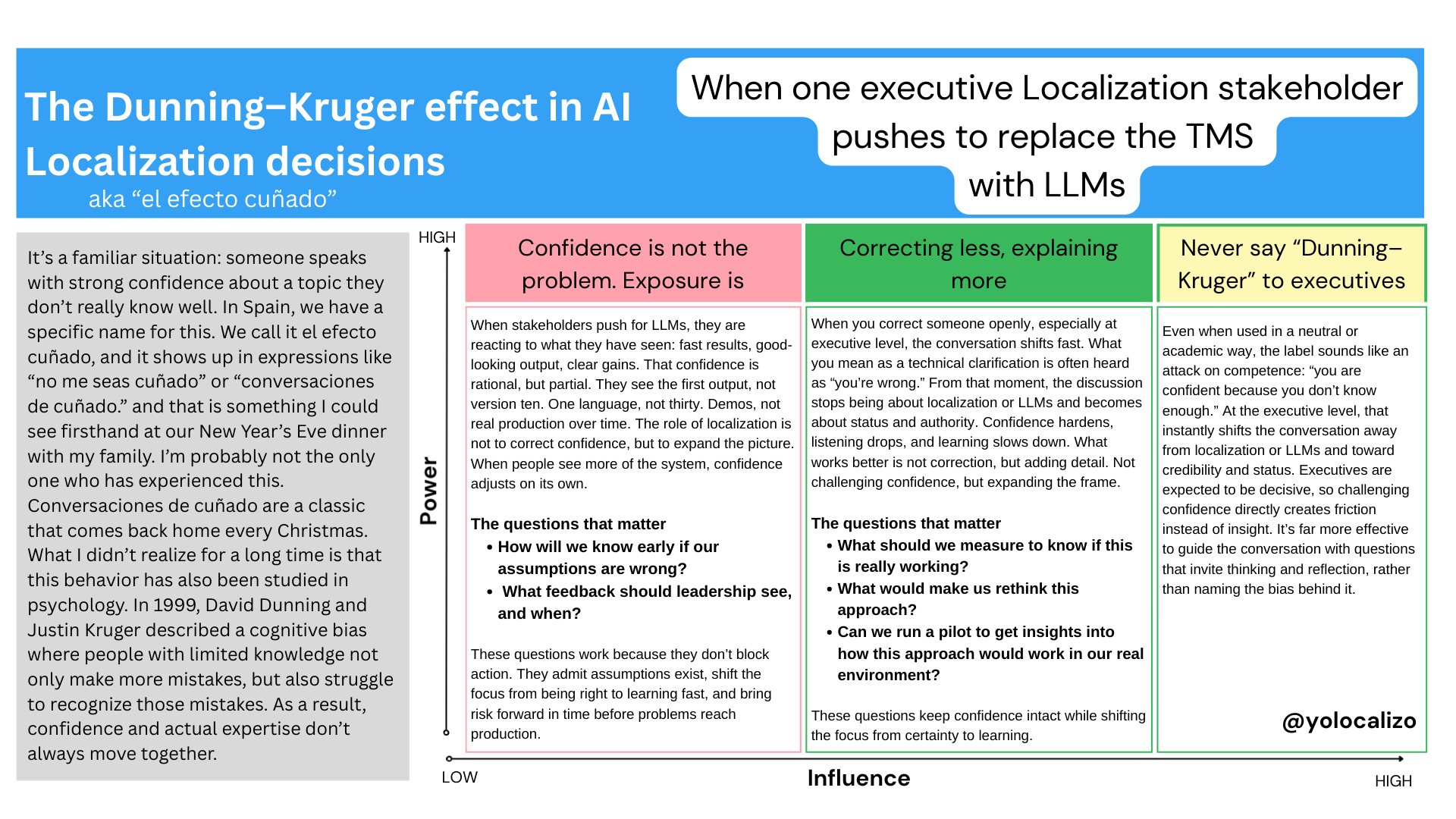


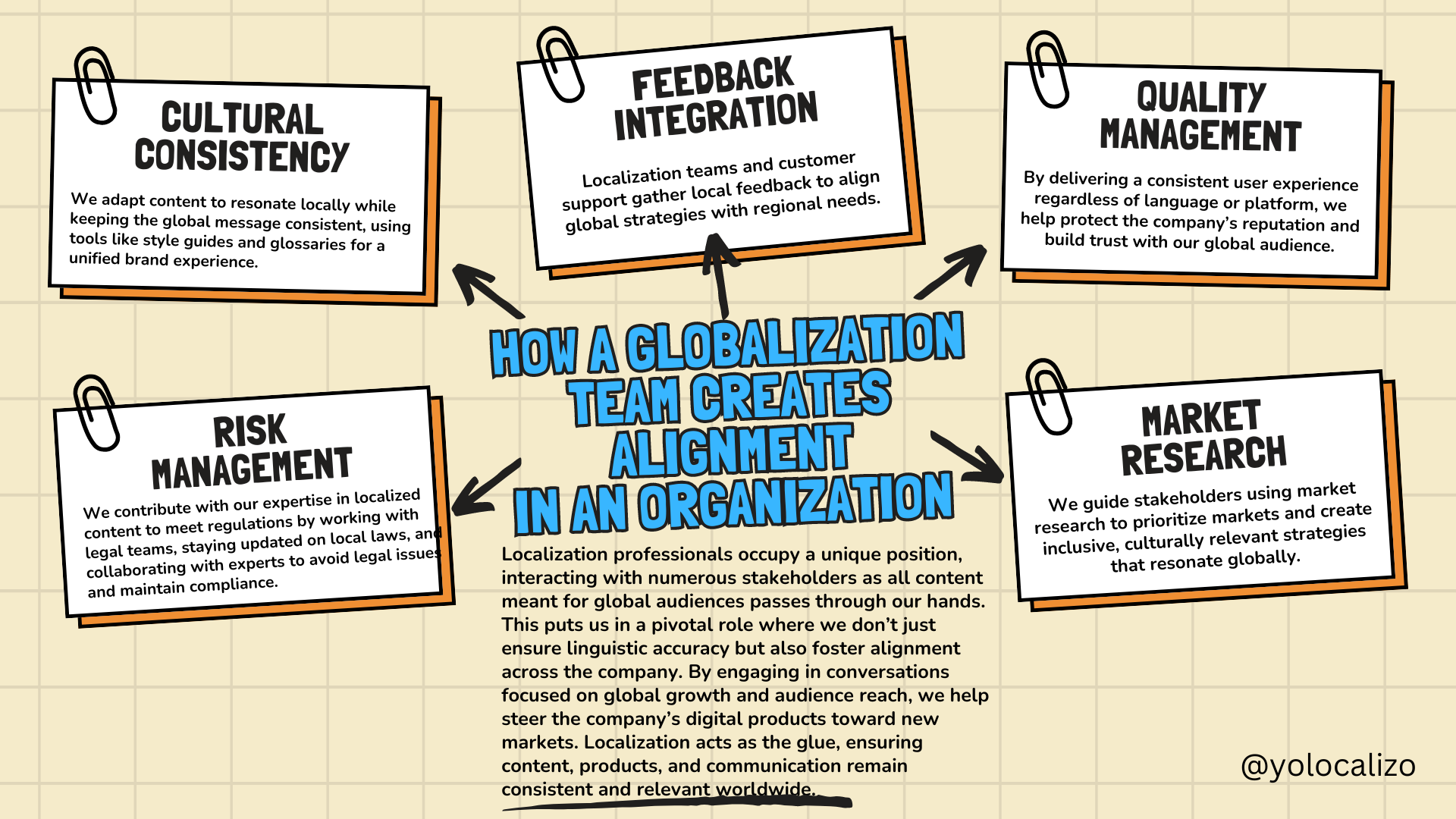
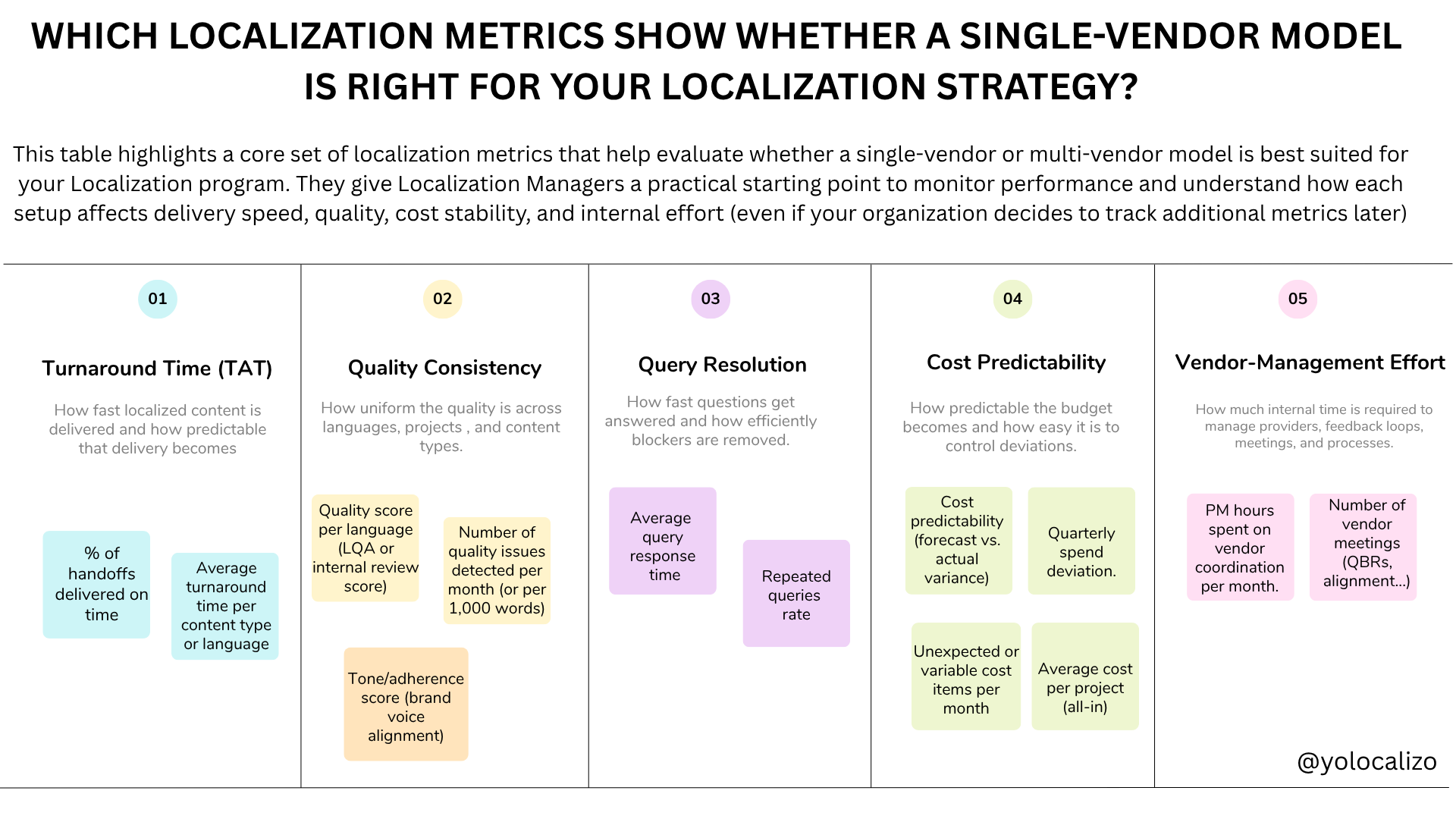






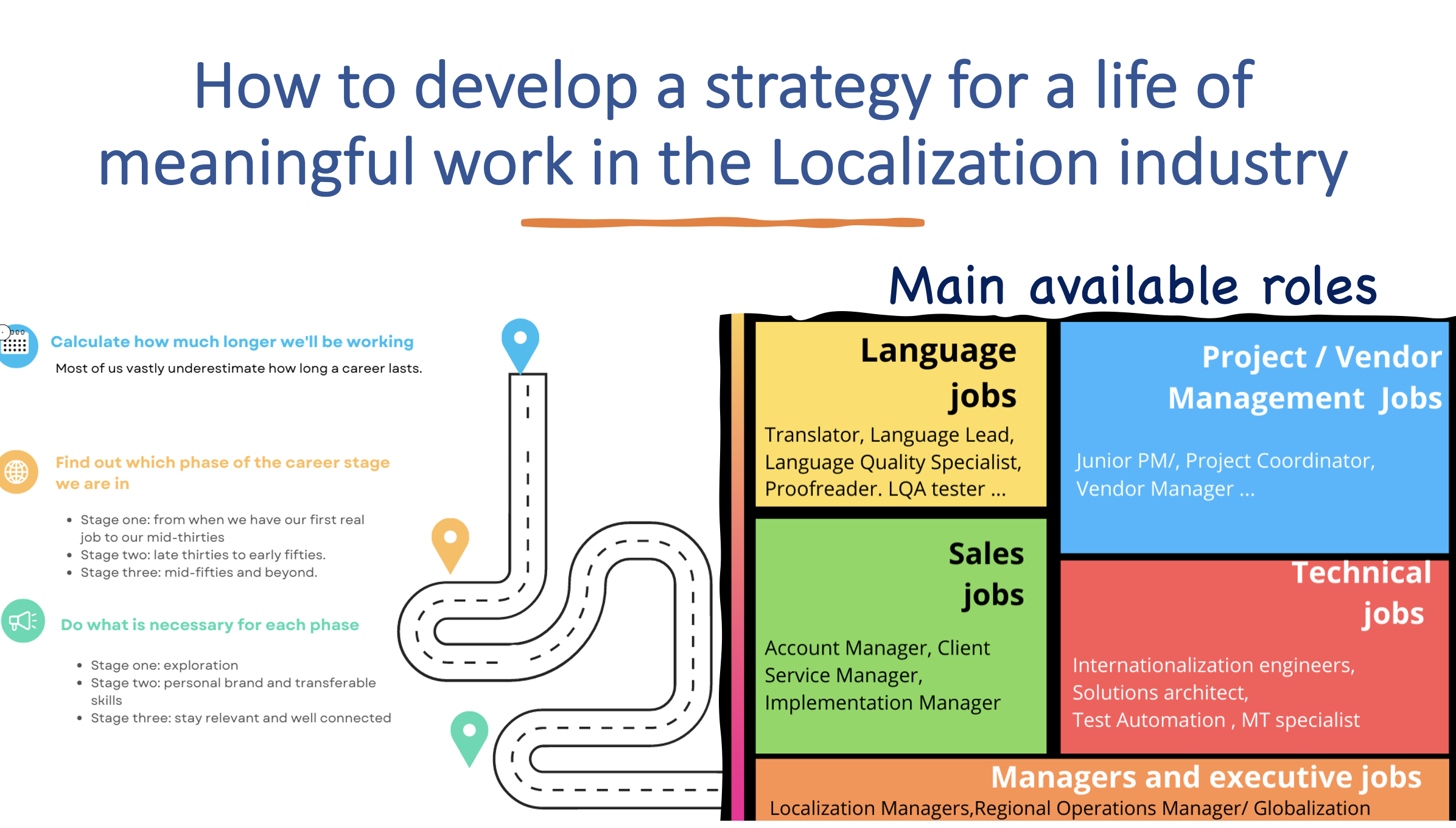

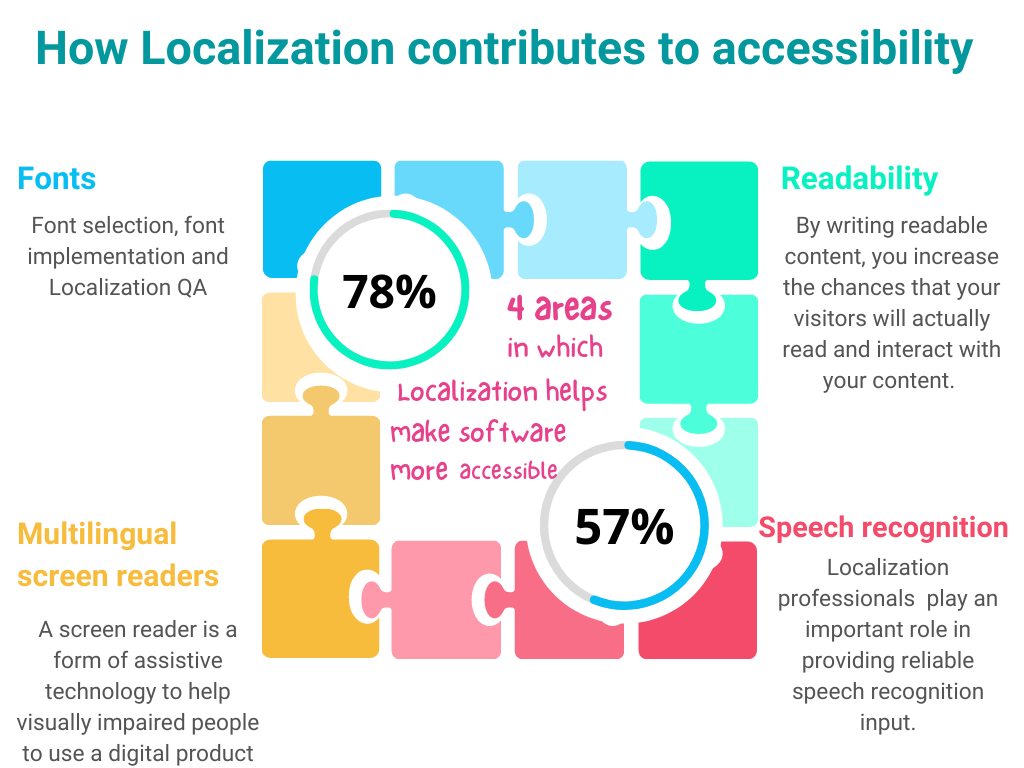
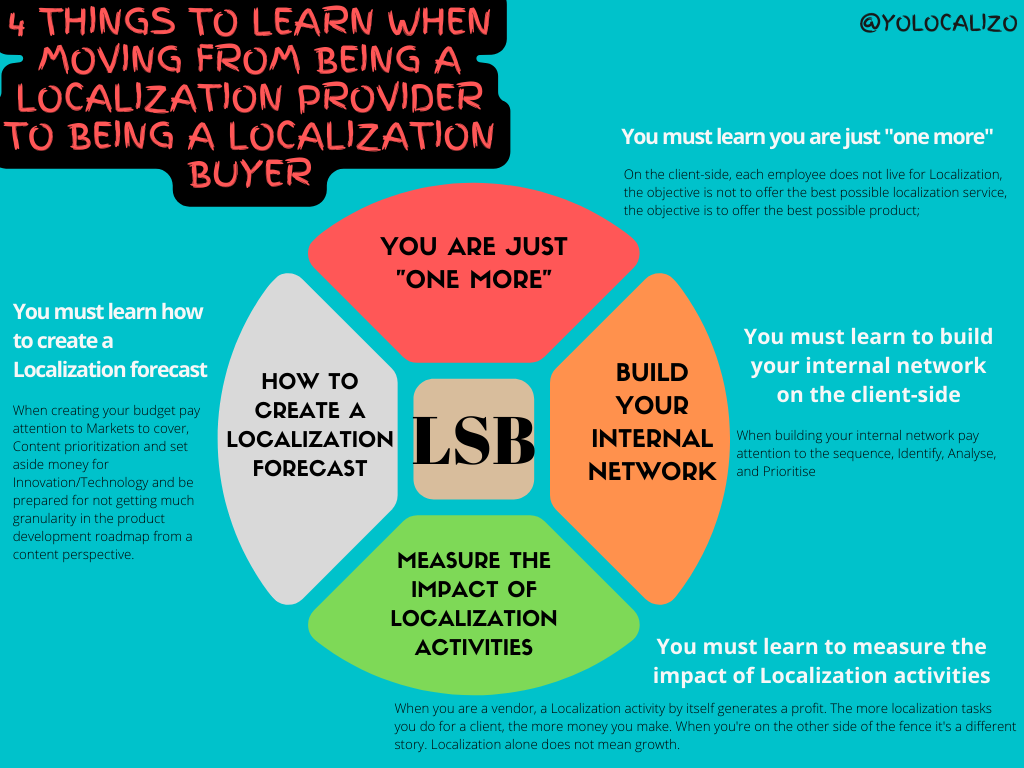
Localization professionals often focus on translation quality and best practices, but decision-makers care about customer impact and revenue. If we frame localization as a cost, it risks being deprioritized. Instead, we must highlight its value driving engagement, trust, and business growth.